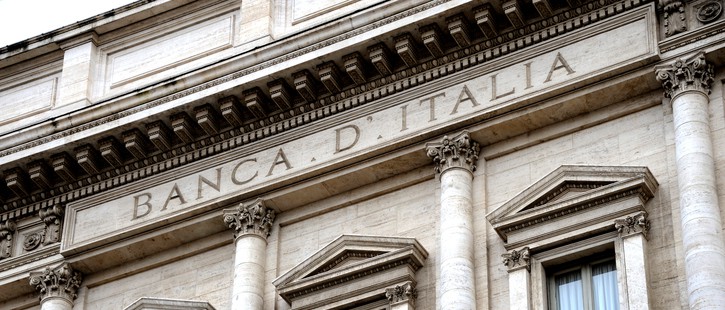Our Opinion: 2018
European shares slump over continuing political upheaval in Italy

After several weeks of severe pressure on Italian assets due to concerns over the fiscal sustainability of the M5S-Lega government program, the coalition’s prime ministerial candidate, Giuseppe Conte, has resigned after the President, Sergio Mattarella, vetoed the proposed finance minister who is, supposedly, a euro-sceptic.
Mattarella argued that it’s his job to protect the nation’s place in the Eurozone. He has appointed former International Monetary Fund official, Carlo Cottarelli, as interim prime minister with the task of trying to form a government.
This is the first time Presidential powers have been used to prevent the formation of a new government, so it does also rather play into the hands of anyone who wants to argue that Europe has too much influence over domestic politics. If you wanted to create the conditions in which the populists have the best chance of getting a mandate to put together an explicitly anti-euro government, then you’d be hard-pushed to find a better way to go about it.
The coalition partners – the left-wing populist Five Star Movement and the far-right populist League – were poles apart on most issues, but united on immigration, disdain for politics as usual and dislike of the EU. The programme they announced for their country combined big tax cuts and spending increases. They were undaunted by Italy’s current debt (130% of GDP).
The Italian President, and the EU, could now be blamed for denying Italians all the benefits they voted for, the “very same EU” that failed to follow through on its promises to help with the huge flow of immigrants (the coalition proposed to deport roughly 500,000 illegal immigrants).
Italy – unlike Greece – is big enough to hold the Eurozone to ransom. To push Italy out of the Euro would be very risky for Germany. As the saying goes, when you owe the bank a little, you’ve got a problem; when you owe it a lot, the bank has the problem.
You can hardly blame the Italians for this mess. The coalition’s programme was a cry for help. Italy is failing, and the root of its problems is its fateful decision in 1999 to join the Euro at the currency’s inception. Although Italy’s debt was at the time roughly double the so-called ‘Maastricht ceiling’ of 60% of GDP, it was unthinkable to exclude a founder member. So, Italy got the short-term benefit of funding its debt cheaply – but at huge cost.
Today, Italy’s GDP is lower than in 1999. While Germany prospered, Italy has become poorer. Youth unemployment is nearly 32%. While countries such as Iceland were able to regain competitiveness by devaluing their currencies, eurozone nations such as Spain and Greece were “forced into a protracted depression” as they struggled to get their costs down, according to the New York Times.
Anger in Italy is running high. It is unlikely that Europe will take the tough line it took with Greece given that there are 66 years of integration at stake. As the Washington Post pointed out, what is happening is the “circle of life (or rather death) of a poorly thought-out currency”.
In the near term, a broad grand coalition technocratic government would reassure investors, after weeks of market concern about the M5S-Lega coalition and its proposed increase in public expenditure.
29th May 2018
